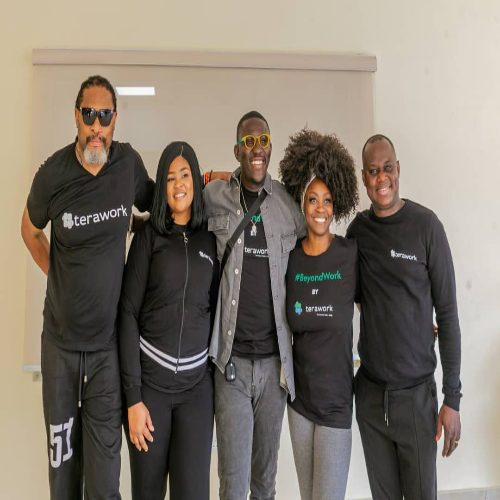
In 2015, Femi Taiwo faced a significant setback when a project he outsourced to a seemingly reliable company ended in financial loss. The company failed to deliver the work and refused to refund his deposit of over ₦300,000 (approximately $1,500 at the time). This experience highlighted a gap in the availability of trustworthy service marketplaces within Africa.
At the time, global freelance platforms were not as widely known or accessible in the region. While online marketplaces like Konga and Jumia focused on products, Taiwo realized there were no similar platforms dedicated to professional services. Inspired to address this issue, he envisioned a solution that would benefit many.
The Birth of Terawork
In 2017, Terawork was launched as an online freelance marketplace connecting business owners and individuals with professional service providers. Often referred to as the “Fiverr of Africa,” Terawork provides a platform for freelancers to showcase their skills and connect with clients across the globe.
Today, the platform hosts thousands of freelancers, agencies, and small businesses offering a variety of services. Freelancers on Terawork have earned substantial income, working for clients within Africa and beyond.
What Sets Terawork Apart
Femi Taiwo attributes the platform’s success to its focus on building trust and ensuring seamless functionality. He observed that many freelance platforms that failed in recent years lacked essential features and processes to foster confidence between freelancers and their clients.
“Terawork incorporates all the essential tools users expect from a freelance platform—customized search engines, real-time chat, gig management tools, multi-currency support, escrow systems, and more,” said Taiwo.
The platform supports transactions in 14 currencies and charges freelancers a commission ranging from 7% to 13%, which is lower than the industry average of 15%. This fair pricing model has contributed to its growing popularity.
Terawork’s operations are funded through commissions, angel investments, and grants, with plans to secure additional funding later this year to support its expansion into new markets.
User Experiences and Success Stories
Terawork’s COO, Titi Ogunsina-Taiwo, joined the company in 2019 and highlighted its 98% success rate in fulfilling orders. She acknowledged that first-time users are often skeptical due to past negative experiences with freelance services but noted that over 60% of new clients return to use the platform again.
To maintain quality, Terawork refunds dissatisfied clients and sanctions freelancers who fail to meet expectations, often reducing their visibility on the platform.
The platform has facilitated numerous success stories, including a freelancer who managed to pay rent and school fees during the pandemic and a business owner who finally launched her e-commerce site after years of failed attempts.
The Future of Freelancing in Africa
The gig economy is gaining momentum globally, with freelancers projected to make up over 80% of the U.S. workforce by 2027. Africa is also seeing an increasing number of professionals leveraging freelance platforms like Fiverr and Upwork despite challenges like foreign exchange rates and unfair practices.
Terawork aims to empower skilled Africans to build online portfolios, work on-demand, and earn sustainable income. It also provides businesses with limited budgets the opportunity to access professional services without long-term commitments.
As the gig economy continues to grow, Terawork is positioning itself as a reliable home for African freelancers, bridging the gap between local talent and global opportunities.


